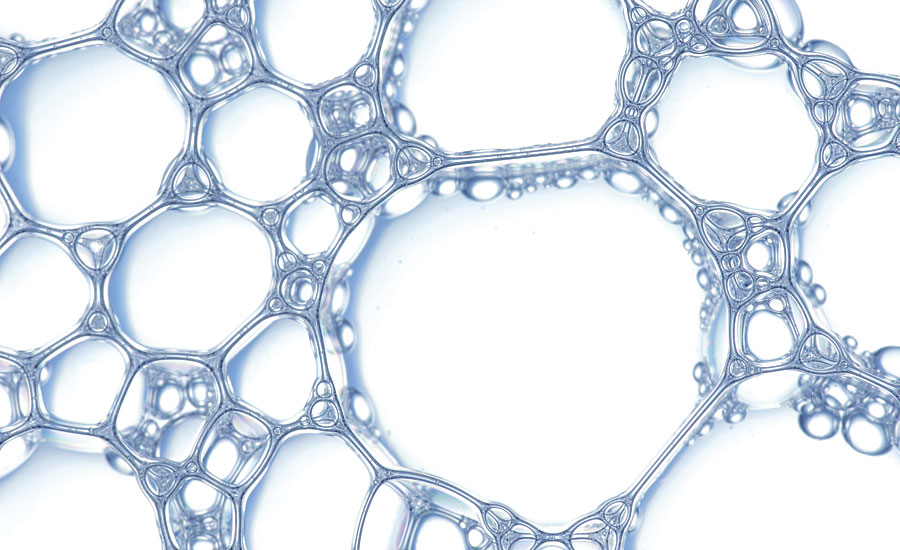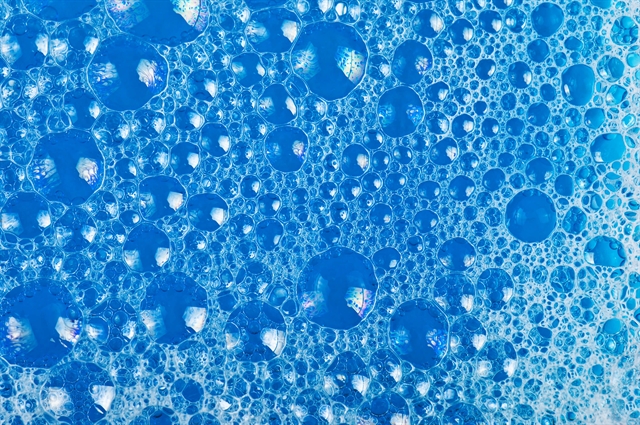The Application of Defoamers in the Pulp and Paper Industry
The Application of Defoamers in the Pulp and Paper Industry
Blog Article
The Function of Defoamers in Enhancing Product High Quality and Performance
In various making processes, the visibility of foam can dramatically impede item high quality and functional effectiveness. Defoamers work as essential ingredients that mitigate this concern, guaranteeing smoother manufacturing process while enhancing the practical and visual attributes of the final products (defoamers). Their application extends a wide range of markets, from food and beverage to pharmaceuticals, where uniformity and reliability are vital. The choice of the proper defoamer can be critical to achieving ideal results, increasing crucial inquiries about formulation compatibility and efficiency metrics that warrant further exploration.
Understanding Defoamers
Comprehending the function of defoamers is necessary for keeping item high quality throughout numerous markets. Defoamers are chemical ingredients created to stop the formation and decrease of foam in liquid systems, which can adversely affect procedures such as blending, filling up, and surface tension. Frothing can bring about inadequacies, item flaws, and jeopardized aesthetic appeal, making defoamers an important element in manufacturing operations.
In commercial applications, defoamers help to boost product uniformity and stability. The efficient usage of defoamers not only makes certain smoother production processes but likewise adds to remarkable product efficiency.
Moreover, the choice and formula of a defoamer must line up with details application needs, such as compatibility with other components, effectiveness under varying temperature level and pH problems, and potential regulative restraints. Inevitably, comprehending defoamers' functions and their value in various formulas is crucial for maximizing manufacturing and guaranteeing the finest quality final result.
Kinds Of Defoamers
Defoamers can be categorized right into numerous kinds based upon their composition and device of action. The main types consist of silicone-based, non-silicone natural, and inorganic defoamers.
Silicone-based defoamers are amongst the most efficient, largely as a result of their ability to spread swiftly on the fluid surface area and disrupt foam formation. Their one-of-a-kind chemical framework enables superior stability, making them ideal for high-temperature applications and settings with differing pH degrees.
Non-silicone natural defoamers, often made up of fatty acids or natural oils, are valued for their biodegradability and lower poisoning. These are commonly used in food and beverage applications where safety and security and ecological impact are extremely important.
Inorganic defoamers, that include materials like talc or calcium carbonate, act by raising the thickness of the fluid, therefore reducing foam security. They are frequently used in industrial processes where compatibility with various other products is not a concern.
Each sort of defoamer has distinct benefits and constraints, permitting tailored options depending upon the particular foaming issues run into in various applications. Recognizing these differences is important for optimizing efficiency and attaining preferred product top quality.
Applications Across Industries
Many markets take advantage of defoamers to enhance item high quality and functional effectiveness. In the food and beverage field, defoamers are critical in procedures such as brewing and dairy products manufacturing to stop foam formation, which can lead to ineffectiveness and item inconsistency. By regulating foam, makers can ensure much better yield and an extra uniform item.
In the pharmaceutical industry, defoamers play an important duty in the formula of liquid drugs, where excessive foam can restrain blending and precise application. Their use aids preserve the honesty of the formulas and facilitates smoother manufacturing procedures.
The paint and finishings sector likewise relies upon defoamers to boost the performance of items throughout application. By lessening foam, these additives ensure a smoother coating and enhance the visual top qualities of the end product.

Advantages of Making Use Of Defoamers
While the application of defoamers differs across markets, their benefits continually boost product high quality and process efficiency. One significant advantage is the reduction of foam development throughout producing processes, which can otherwise result in production hold-ups and incongruities in item high quality. By decreasing foam, defoamers make it possible for a smoother circulation of products, assisting in extra reliable procedures and decreasing the likelihood of tools breakdowns.
In addition, making use of defoamers can improve the look and structure of end products. In sectors such as coverings, paints, and food handling, extreme foam can compromise the aesthetic aesthetics and general quality, while the ideal defoamer application makes certain an uniform surface and preferable qualities. Defoamers can add to set you back savings by lowering waste throughout production and optimizing the usage of raw materials.

Selecting the Right Defoamer
Picking the right defoamer is important for optimizing production processes and making certain product high quality. The selection of defoamer affects not Our site just the efficiency of foam control however likewise the general performance qualities of the last product. Variables to take into consideration include the type of application, the chemistry of the formula, and the environmental conditions under which the item will be utilized.
Different sectors may need details defoamer types, such as silicone-based, organic, or polymeric defoamers. Recognizing the compatibility of the defoamer with the main active ingredients is vital to avoid negative responses that could endanger product integrity. In addition, the defoamer's efficiency in numerous temperatures and pH degrees must be assessed to make certain consistent efficiency.
Testing the defoamer in why not try this out small-scale applications can give valuable understandings right into its performance and viability. Factor to consider of governing compliance, specifically in food, pharmaceuticals, and cosmetics, is vital in selecting a defoamer. Eventually, a thorough analysis of these elements will certainly result in the choice of a defoamer that not just regulates foam efficiently yet also improves the top quality and efficiency of the final item.
Conclusion

In verdict, defoamers are vital additives that considerably enhance product quality and efficiency throughout various industries. The critical option and application of defoamers lead to set you back savings, enhanced resource usage, and raised client fulfillment.
Foaming can lead to inefficiencies, product issues, and endangered aesthetic allure, making defoamers a critical component in making procedures.

Report this page